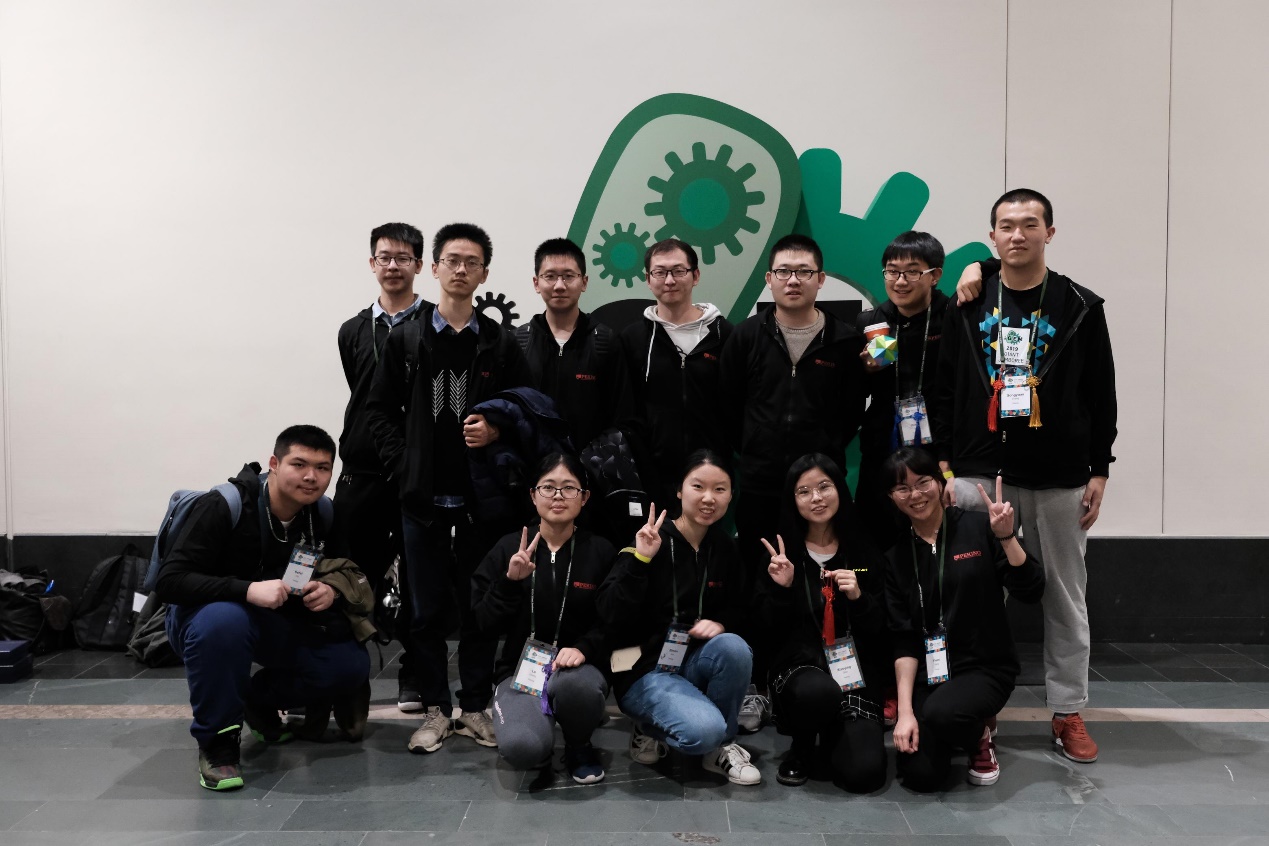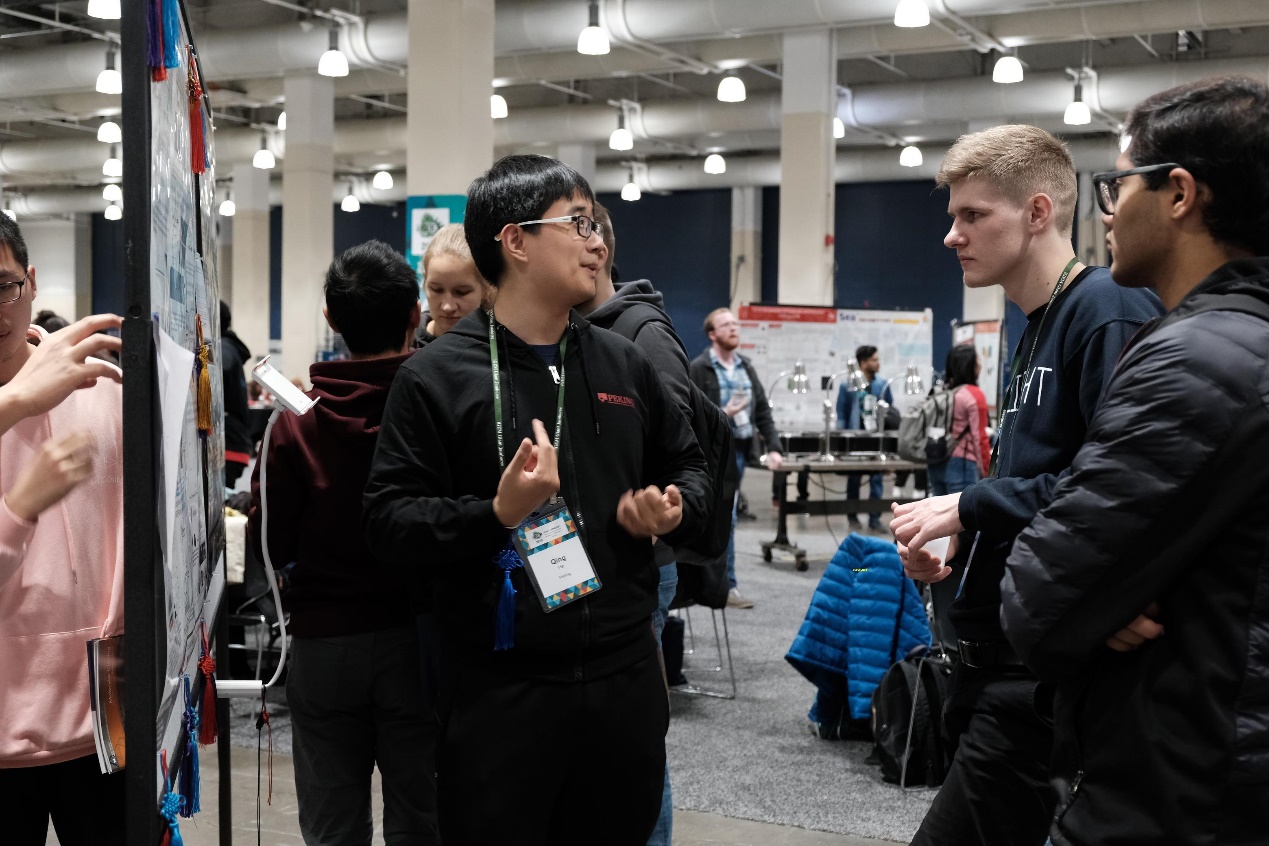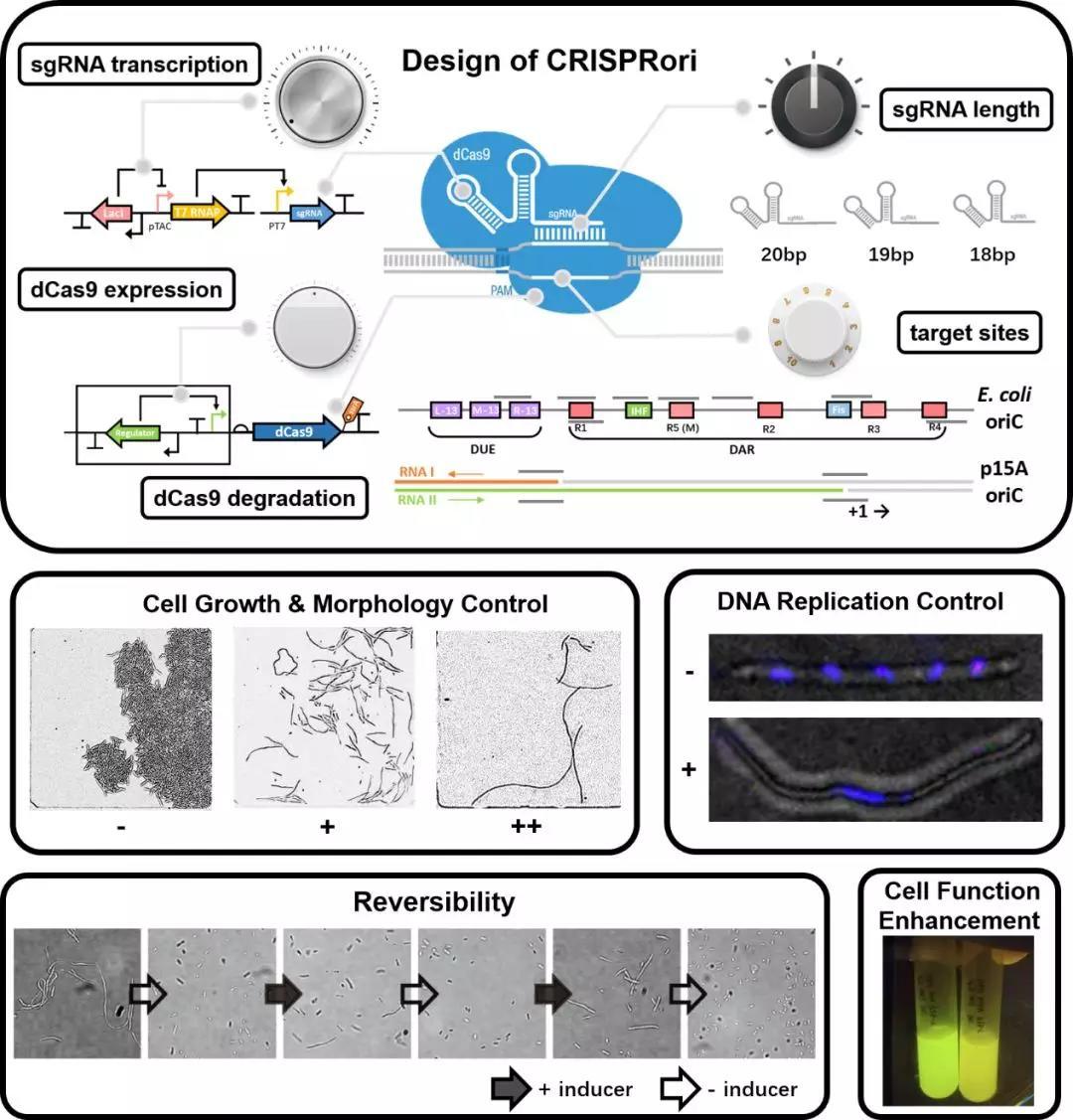The final of the International Genetically Engineered Machine Competition (iGEM) was held at the Hines Convention Center in Boston, USA from October 31 to November 4, 2019. The Peking University team stood out from more than 300 teams from all over the world and won a second gold medal for PKU.
The International Genetic Engineering Machine Contest (iGEM) originated in 2003 and was originally hosted by the Massachusetts Institute of Technology (MIT) in the United States. Now it has developed into an international top-level event in synthetic biology.
Peking University has participated in the competition since 2007 and has won several medals and awards, including the Grand Prize.

The PKU iGEM 2019 team
In 2019 the PKU iGEM team was composed of 12 undergraduates from the Life Sciences, Medical Department, and Yuanpei College Integrated Science Direction. They adhered to the excellent tradition of independence, from the selection of early team members, brainstorming, topic determination to mid-term experimental design, funding management, laboratory operation, contacting with industry experts, to later schedules, project displays, etc. Undergraduate students completed all stages of the research, experiments, and data analysis independently. This comprehensive training of undergraduates' independent research capabilities, innovative thinking, leadership and other comprehensive qualities and perseverance of will quality, accumulated valuable experience for them to become leading talents in all walks of life.

Communicating with other teams
This year, the iGEM team of PKU developed “CRISPRori”, a set of DNA replication control system based on CRISPR technology, which has the advantages of multi-input, and of being adjustable, reversible, and modular. It can be applied to prokaryotic genome DNA, plasmid, organelle DNA, etc. DNA replication regulation at a single origin of replication. For engineering bacteria containing this system, its proliferation rate, external morphology, and DNA content are highly controllable, and the expression of foreign proteins has been significantly improved. It has broad application prospects in industrial production and medical fields, such as to improve the efficacy and reduce the side effects of tumor bacterial therapy, and to control the possibility of infection caused by excessive bacterial proliferation.

Project design and some experimental results
The instructors of the iGEM team of PKU are Professor Ouyang Qi, Peking University Center for Quantitative Biology, Professor Wei Ping, Professor Qian Long, Professor Lin Yihan, and Li Cheng, PhD student of the Joint Life Science Center. The School of Life Sciences of Peking University provided financial support for the whole process. Professor He Xinqiang and Associate Professor Wang Qingsong provided hardware support for the venue and equipment.